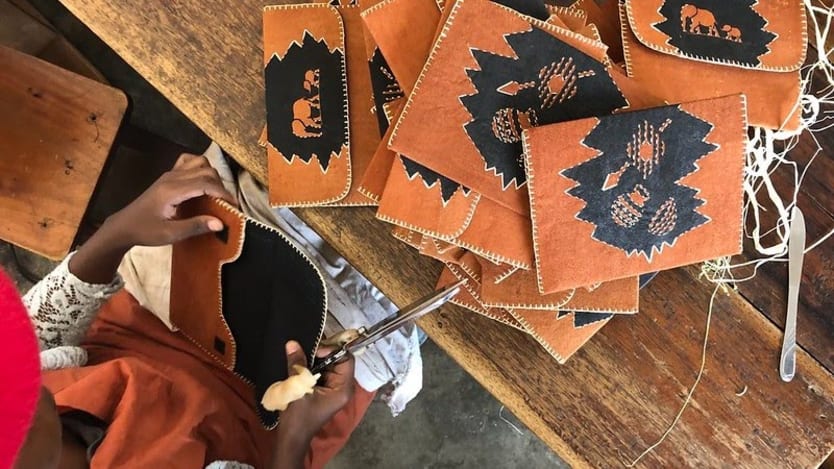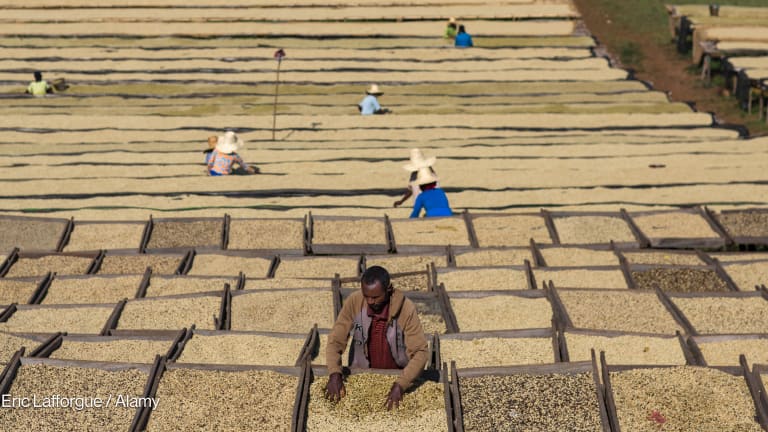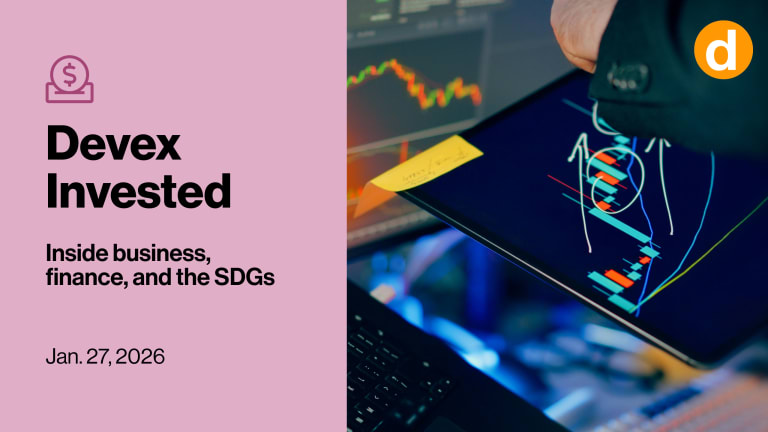
The global scale of the COVID-19 crisis threatens micro-, small-, and medium-sized enterprises, which dominate employment around the world — especially in lowest-income countries.
In comparison with large organizations, MSMEs are seeing larger drops in sales, reduced retained earnings, less access to external finance, and fewer ways to adapt and adjust, while also employing a larger share of the most vulnerable populations. Women MSME owners are particularly hard hit by the pandemic, especially as their businesses are often in retail service industries that involve direct contact with customers.
With tight constraints on fiscal space and urgent social spending needs, the governments of most low-income countries are not able to extend support to MSMEs, while governments in more advanced economies, also hit by the recession, may likely opt to cut their development assistance.
At a time when business as usual will not suffice, shareholders and leadership should act decisively to unleash the potential of DFIs.
—While the priority is on the emergency health-related response, a portion of aid should also serve to more effectively leverage and incentivize private investment as an essential part of a sustainable recovery in lower-income countries — especially for MSMEs.
This extraordinarily difficult period is therefore a fundamental test of the role and relevance of multilateral and bilateral development finance institutions that finance the private sector. Their job is to be countercyclical — to help restart private finance, essential both to helping organizations weather the crisis and to launching recovery.
Many DFIs have come forward with ambitious, proactive strategies, and they have well-established relationships with financial institutions around the world. They are well placed to target financial actors that can reach MSMEs, including in LDCs and LICs. As outlined in our recent report, a strong DFI focus on MSMEs — in partnership with local financial institutions — is justified to promote both survival and resilience.
How DFIs are responding to the COVID-19 crisis
DFIs are deploying capital and working out plans to respond to immediate and long-term needs caused by the coronavirus. But can these institutions prove their worth in the wake of the pandemic? We talk to top officials at leading DFIs to find out.
And yet, while DFIs have the will and the in-country relationships, operationally they face mostly constraints similar to those encountered by commercial banks — in terms of institutional ratings, conservative capital adequacy policies, market-based pricing, and the need to add to capital through retained earnings.
These fundamental attributes of their governance and business models do not mesh well with large-scale countercyclical lending during a time of maximum risk and uncertainty, especially in countries where DFIs frequently lament a shortage of bankable projects, even in better times.
How can DFIs and their shareholders address this gap?
At a time when business as usual will not suffice, shareholders and leadership should act decisively to unleash the potential of DFIs. Here are four suggestions:
1. Blend and guarantee more
Donor governments can come forward with more grant resources to help DFIs offload increased risk in blended — or concessional plus commercial — finance transactions and provide guarantees as an effective way to leverage more resources for greater impact, building back better.
2. Increase DFIs’ capital
Shareholders can launch large capital increases for DFIs to expand their lending capacity, as suggested for the World Bank and the European Investment Bank. DFIs could be allowed to stretch more their callable capital, unleashing some of their existing potential.
3. Collaborate and syndicate more
Shareholders can press DFIs to collaborate more to achieve greater scale by sharing risk and project development costs, as initiated by the DFI Alliance. They can do so through cooperative engagement, syndication, and co-financing instruments, adopting mutual reliance agreements, harmonized procedures, and common approaches — notably on gender with the 2X Challenge.
4. Team up with local actors
DFIs should more systematically cooperate with local public and private financial institutions, with a view to help enhance local capacity and contribute to more systemic transformation — beyond individual transactions — building on local contexts and dynamics in a sustainable manner.
Setting up a joint MSME financing facility
An innovative way to unleash the collective DFIs’ potential to do more for MSMEs, combining some of the above features, would be to set up a joint MSME financing facility as a new vehicle — such as the Stretch Fund proposal — or building on and adjusting existing ones, such as the International Development Association Private Sector Window, Global Innovation Fund, European Financing Partners, or ACP Investment Facility or as part of the European Fund for Sustainable Development.
This structure would be an off-balance sheet, capitalized by donor equity, and possibly supported by guarantees.
The financing facility would partner with multiple DFIs — including local financial institutions — incentivizing DFIs to work together for scale and greater impact, with an explicitly agreed target of submarket returns or even simply preservation of its equity.
Its purpose would be to allow DFIs to stretch their capital, build project pipelines, invest in projects that otherwise would not pass DFI credit committees, and focus more on mobilizing other investors’ money than on expanding the volume of their own business. And it would deploy an instrument mix suited to catalyzing funding during this period of high risk and uncertainty — with emphasis on equity and guarantees.
Ideally, the facility would be capitalized by a combination of governments and risk-tolerant foundations and philanthropic investors that share an interest in investing for development impact.
It would target MSMEs, as well as financial institutions and service providers that serve MSMEs, in low-income and emerging markets — especially innovative organizations with demonstrable market-building potential and a high projected social and environmental impact.
Development heavyweights back bigger role for DFIs in COVID-19 response
A group of 20 experts urge European governments to give development finance institutions more firepower to support the private sector in Africa.
Additionally, it would seek to promote inclusive growth by prioritizing vulnerable local population groups, including women, minorities, and Indigenous people. Specifically, a more focused gender approach to MSME financing would have an outsize positive social impact on household income, health, and education, among others.
The facility should also seek to encourage the adoption of good environmental, social, and governance practices that can directly improve business resilience and add business value — for example, increasing revenues, reducing costs, or mitigating operational risks. Some of these practices may include sustainable use of natural resources, sound human rights practices across the supply chain, and financial transparency and reporting, to name a few.
The pandemic and its economic effects pose fundamental challenges to DFIs and their shareholders. It will not be enough simply to put more capital into the existing DFI system. The depth and the duration of the crisis require building real and proactive collaboration within that system and a much stronger capacity to manage risk for greater scale and impact.
We encourage DFIs and their shareholders to support this ambitious approach by signing up to the Tri Hita Karana Statement on The Role of DFIs, MDBs and Shareholders in Building Back Better in the Wake of Covid-19.
Search for articles
Most Read
- 1
- 2
- 3
- 4
- 5








